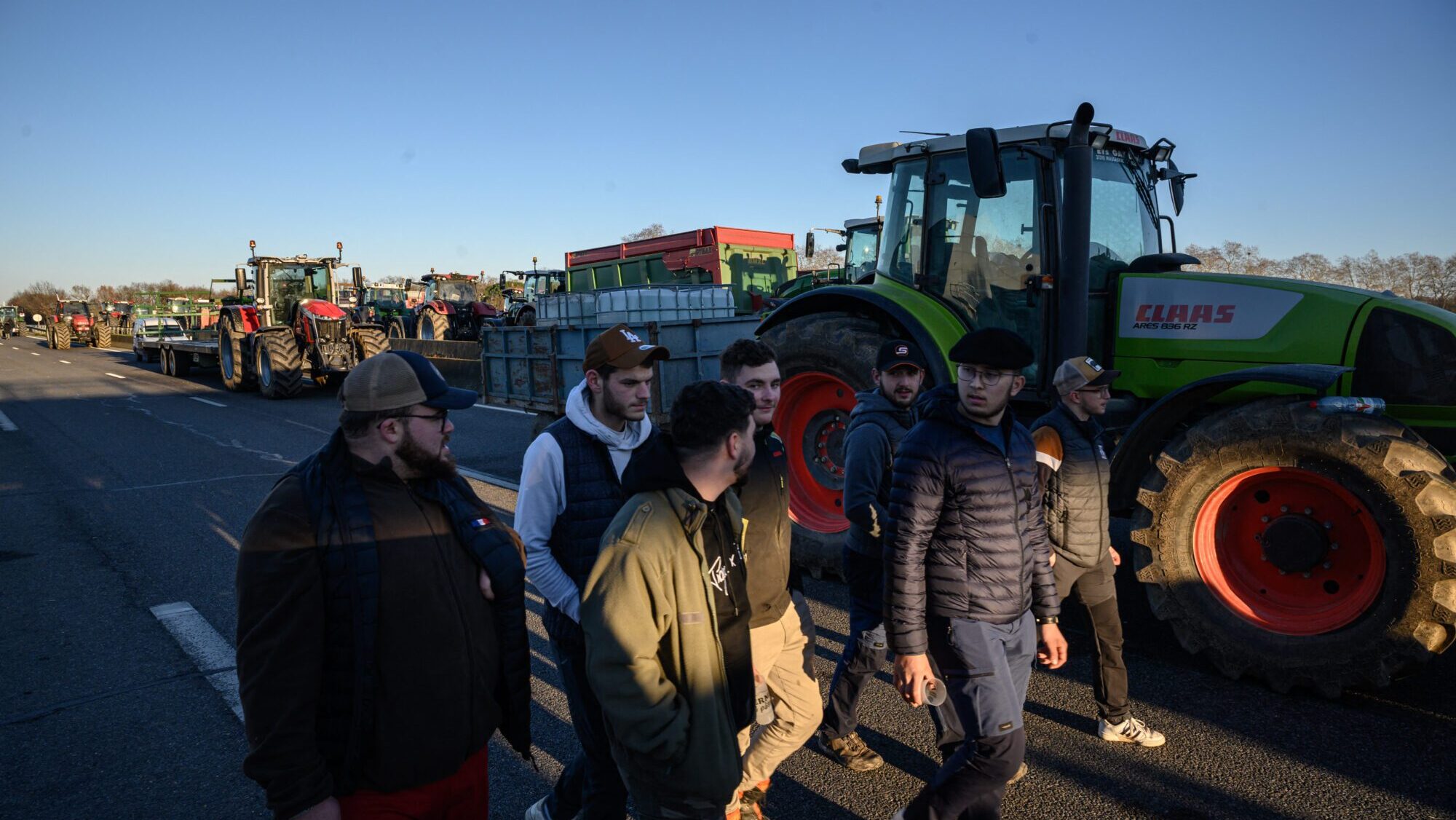
Farmers block the highway A64, to protest against taxation and declining income, near Carbonne, south of Toulouse, on January 20, 2024.
Photo by Ed JONES / AFP
After the Netherlands, Germany and Poland, farmers in France are now revolting. For several days now, they have been engaged in an arm-wrestling match with the government to protest against the excessive regulations that are destroying their livelihoods.
The movement began in the department of Tarn, in the south-west of France, in a seemingly innocuous form: angry farmers started turning town name signs upside down. The movement gradually gained ground and spread throughout the country. While seemingly harmless at first glance, the discontent could lead to a social movement like that of the Yellow Vests (Gilets Jaunes), which paralysed the country in the winter of 2018.
Since Thursday, January 18th, the situation has deteriorated with the blocking of the A64 motorway in the Occitania region, as well as gatherings on roundabouts—until now one of the hallmarks of the Yellow Vests—or in front of public administration buildings. Fearing that the movement will take hold and grow, new Prime Minister Gabriel Attal was due to receive representatives of the FNSEA, France’s largest farming union, on Monday, January 22nd. The president of the union warned on public television ahead of the meeting: “If the government doesn’t get its act together, we could be on the cusp of a major farming movement.”
There are a number of factors that explain the crisis in the farming sector, which has affected France as well as other places in Europe. These have given rise to major demonstrations by farmers, who are not usually inclined to this type of behaviour.
Firstly, farmers are alarmed by the fall in farm income, estimated at 9% for 2023 in France, after two consecutive years of increases. This drop in income is due to the explosion in the cost of energy, labour, and animal feed. The war in Ukraine, triggered by Russian aggression in February 2022, is also having an impact, disrupting grain imports into Western Europe.
Secondly, farmers are contesting the ‘green deal’ imposed by the European Union, which imposes heavy public health constraints on them by setting the target of halving the use of chemicals in agriculture by 2030. The project was rejected in November 2023, but MEPs fear its return and intend to make their voices heard to prevent it in the European elections next June. According to them, on the basis of a 2021 study, the ‘greening’ of practices could be accompanied by an estimated fall in production of between 5 and 15%, forcing farmers to import agricultural products from other countries that are not subject to the same environmental standards.
French farmers are also contesting the constraints imposed by Europe, which weigh particularly heavily on French agriculture: in 2024, for example, Brussels refused to extend an exemption allowing land set aside for environmental schemes to be cultivated, despite the needs arising from the war in Ukraine, which is causing food shortages.
Finally, there is a deep-seated weariness in rural areas about the abundance of regulations, which are restrictive to the point of absurdity and prevent any innovation. “Physical hardship has gradually given way to moral hardship, due in particular to the increasingly onerous rules and standards. At some point the cup overflows,” explained Étienne Gangneron, President of the Loire-et-Cher Chamber of Agriculture, to Agriculture Minister Marc Fesneau. One significant example put forward by the head of the FNSEA is the planting of hedgerows, traditionally used extensively in western France, but currently falling into disuse despite their environmental value, because they are subject to 14 different regulations at both European and French levels. As a result, farmers are giving up planting them.
The French Minister of Agriculture has admitted the need to “simplify” rural legislation. A bill to encourage new farmers was due to be presented to the National Assembly on Wednesday, January 24th. Long-awaited by farmers, who are seeing an increasing number of retirements without farms being taken over, the bill will be postponed for a few weeks, so that it can be supplemented by a “simplification” section at the request of the Minister.
The Salon de l’Agriculture opens its doors in Paris on February 24th. Always a popular meeting place for politicians first and foremost, it will be an opportunity for French farmers to give media coverage to their discontent. Before that, French Farmers will also go to Brussels for a demonstration on January 24th.
